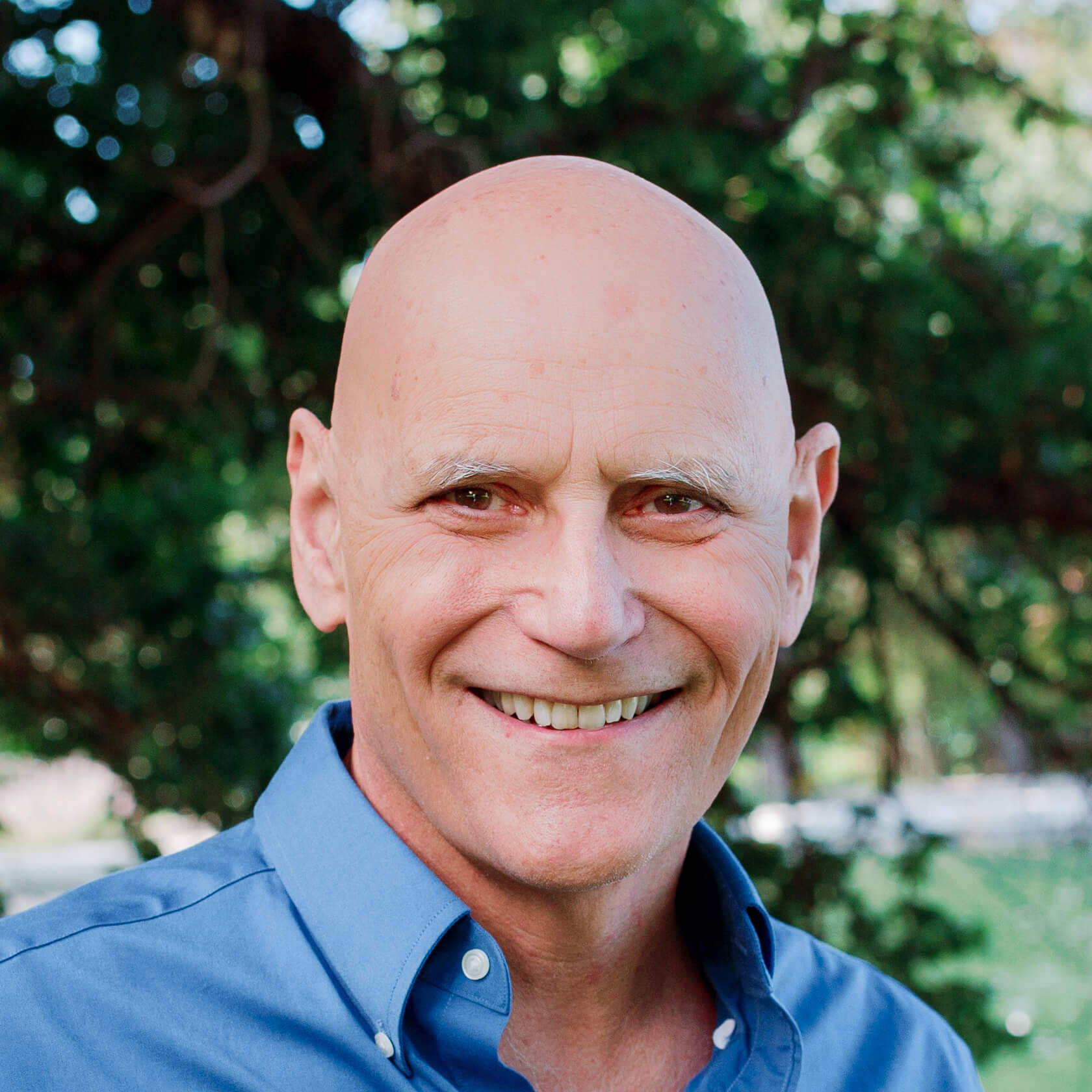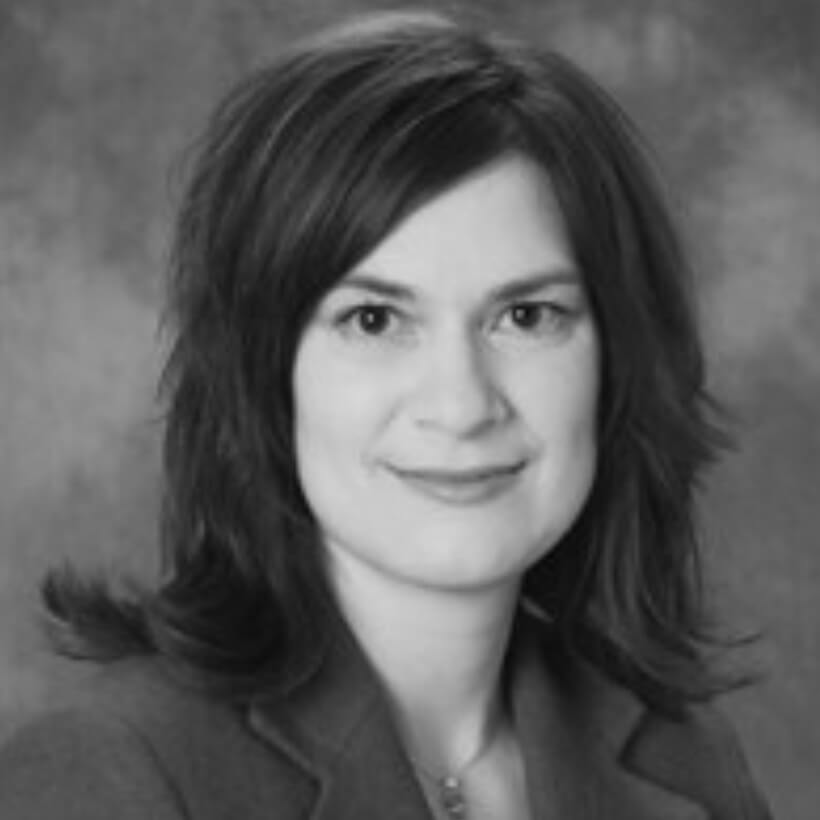
ACT BootCamp® for Behavior Analysts – Reno
Join us for this 4-day ACT BootCamp® for Behavior Analysts workshop in the ‘biggest little city in the world’, Reno, Nevada, with many leading ACT experts in Behavior Analysis, including ACT co-founder, Steven C. Hayes, Mark Dixon, Ruth Anne Rehfeldt, and more.
This workshop is designed to provide behavior analysts with a foundational understanding of acceptance and commitment training (ACT). ACT began over three decades ago as a behavior analytic approach to intervention in verbally-able populations who might need excessive rule-governed behavior to be diminished in order to better contact and be regulated by direct contingencies. Its conceptual and empirical basis has strengthened considerably since 1982, and it is now fully entering into the armamentarium of BCBAs in areas such as the following:
- Parent training
- Staff management and development
- Organizational work
- Work with developmentally delayed populations and the chronically mentally ill
- Educational settings with special needs students
ACT is a method for changing behavior by increasing psychological flexibility, meaning larger patterns of values-based behavior that fit the current context and are resistant to needless disruption by private events. Increasing research (including research published in behavior analytic journals) has shown that psychological flexibility is a key component in altering behavior across a wide variety of populations.
This workshop will give the behavior analyst a deeper understanding of the roots of ACT — including how verbal behavior as extended by relational frame theory (RFT) and radical behaviorism as extended into functional contextualism provides a solid foundation conceptually and philosophically.
Behavior analysts will also learn skills and techniques they can use to increase psychological flexibility with their clients while still staying within their scope of practice. Experiential exercises provide attendees with a hands-on way of understanding how ACT techniques influence psychological flexibility and overt behavior. Didactic presentations will range from a basic understanding of RFT, ACT, and functional contextualism to how BAs can apply these skills with specific populations.
Evening breakout sessions will cover topics such as scope of practice, ethics, and supervision. When you enroll, you’ll be participating in the advancement of education for the BA community.
That’s because the workshop will be filmed one time only for the creation of a new on-demand course. You’ll be the first to see newly updated material that will make this BootCamp the most innovative and practical to date. And you’ll get the chance to see how our courses are produced firsthand.
In order to be in the room for this unique opportunity, you’ll be required to sign a release form in the event that you appear on camera.
Prior to registering, please review speaker-planner conflict of interest disclosures and complete CE information.
Formal meals will not be provided at the event. Coffee/tea and light refreshments may be made available at various times.
A guest room block is available at the Whitney Peak Hotel at a discounted rate of $135/night. You can reserve your room using the link at the right, or by calling (775) 398-5400 and using the group code PRAXIS1122. Parking is complimentary at the venue for all attendees.
3 November | Day 1, Thursday | Why ACT and RFT for Behavior Analysts: A History and Introduction to the Model
| Steven C. Hayes, PhD and Mark Dixon, PhD, BCBA-D | 6.5 CE Hours
Acceptance and Commitment Training (ACT) is rooted in behaviorism. As a practical application of Relational Frame Theory, ACT is a direct outgrowth of Skinnerian behaviorism. In this session we will provide you with a history of the ACT model, articulating its roots in radical behaviorism. You will also be introduced to the three pillars of the model: engaged, open, aware. The day will close with an investigation of the difference between Skinnerian and relational operants, and a practical exploration of how to know your clients are ready for ACT.
7:00 am – 8:00 am: Check-in*
8:00 am – 8:45 am: The Behavioral Background of ACT
8:45 am – 9:45 am: The Psychological Flexibility Model and the Dark Side of Language
9:45 am – 10:00 am: Morning Break*
10:00 am – 12:00 pm: The Three Pillars of ACT: Engaged, Open, Aware
12:00 pm – 1:00 pm: Lunch Break*
1:00 pm – 2:15 pm: Relational Versus Skinnerian Operants: What’s the Difference?
2:15 pm – 2:30 pm: Afternoon Break*
2:30 pm – 4:00 pm: Client Readiness for ACT
4:00 pm – 5:00 pm: Evening Break (for those staying for the optional Evening Workshop)*
Optional Evening Workshop | How to Use ACT in Behavioral Practice | Steven C. Hayes, PhD and Mark Dixon, PhD, BCBA-D | 2 CE Hours
In this session, ACT exercises you can use in the behavior analytic practice will be described. You will see live examples of how to use these interventions in on-stage real and role plays. You will then be given the chance to practice this work yourself in small groups.
5:00 pm – 7:00 pm: How to Use ACT in Behavioral Practice
4 November | Day 2, Friday| Implementing ACT In Your Behavior Analytic Practice: A Step-By-Step Approach
| Mark Dixon, PhD, BCBA-D | 6.5 CE Hours
This session will focus on step-by-step practical implementation of the ACT model. We will start with a review of assessment, analysis, and intervention in each of the six core processes of the model. We will then discuss how to approach an initial session with a client, how to develop a functional analysis based on ACT, how to start using the model in treatment, and what ongoing sessions and ongoing analysis look like.
7:00 am – 8:00 am: Check-in*
8:00 am – 8:45 am: The Behavioral Background of ACT
8:45 am – 9:45 am: Analysis, Assessment, Intervention: Values, Committed Action, and Defusion
9:45 am – 10:00 am: Morning Break*
10:00 am – 12:00 pm: Analysis, Assessment, Intervention: Acceptance, Self as Context, Present Moment
12:00 pm – 1:00 pm: Lunch Break*
1:00 pm – 2:15 pm: First Meeting, Creating the Functional Analysis, Starting Treatment
2:15 pm – 2:30 pm: Afternoon Break*
2:30 pm – 4:00 pm: Ongoing Sessions, Ongoing Assessment, and How to Work with Caregivers
4:00 pm – 5:00 pm: Evening Break (for those staying for the optional Evening Workshop)*
Optional Evening Workshop | Addressing Common Problems in Integrating ACT with ABA | Steven C, Hayes, PhD, Mark Dixon, PhD, BCBA-D, and Ruth Anne Rehfeldt, PhD, BCBA-D | 2 CE Hours
During this two-hour evening program, the trainers will discuss common problems that come up when integrating ACT in an ABA setting and how to approach these challenges. The evening will close with an open floor Q&A.
5:00 pm – 7:00 pm: Addressing Common Problems in Integrating ACT with ABA
5 November | Day 3, Saturday| The Expansiveness of the ACT Approach: Apply it at Every Level of Your Practice
| Ruth Anne Rehfeldt, PhD, BCBA-D | 6.5 CE Hours
ACT has broad application in virtually every area of applied behavior analysis. We will discuss how ACT fits into the BCBA task list and how it is an individualized, scalable, functional method for treating clients in a variety of settings. We will then turn our attention to the application of ACT in your workplace, in your supervision practice, and even in your community.
7:00 am – 8:00 am: Check-in*
8:00 am – 8:45 am: Review of the Behavior Analytic Nature of this Workshop and Outlining the Expansiveness of the Model
8:45 am – 9:45 am: Fitting ACT to the BCBA Task List
9:45 am – 10:00 am: Morning Break*
10:00 am – 12:00 pm: The New Form of Functional Analysis: Individualized, Scalable, Functional
12:00 pm – 1:00 pm: Lunch Break*
1:00 pm – 2:15 pm: ACT in Your Workplace and in Supervision
2:15 pm – 2:30 pm: Afternoon Break*
2:30 pm – 4:00 pm: ACT in Your Community
4:00 pm – 5:00 pm: Evening Break (for those staying for the optional Evening Workshop)*
Optional Evening Workshop | How to Implement ACT Broadly Throughout Your Behavior Analytic Practice | Steven C. Hayes, PhD and Ruth Anne Rehfeldt, PhD, BCBA-D | 2 CE Hours
This session will focus on how to apply ACT more broadly in your practice–with staff, with parents, in supervision, and more. You will see live examples of how to use these interventions in on-stage real and role plays. You will then be given the chance to practice this work yourself in small groups.
5:00 pm – 7:00 pm: How to Implement ACT Broadly Throughout Your Behavior Analytic Practice
6 November | Day 4, Sunday| Future Vistas: The Application of ACT in the Evolution of Behavior Analysis
| Steven C. Hayes, PhD and Ruth Anne Rehfeldt, PhD, BCBA-D | 4 CE Hours
Behavior analysis is rapidly evolving. Now more than ever, there is a need for scientifically sound, behavioral interventions for personal change in our world. The broadly applicable nature of ACT fits perfectly into this evolving model of applied behavior analysis. In this session, we will look at future vistas in ABA and show how a new era of behaviorism is coming–one that is truly individualized.
7:00 am – 8:00 am: Check-in*
8:00 am – 9:45 am: Applying ACT to BCBA Frontiers: Behavioral Health and Behavioral Medicine
9:45 am – 10:00 am: Morning Break*
10:00 am – 12:15 pm: We Need a New Behavior Analytic Tradition: The End of Normal and the New Behaviorism
12:15 pm – 1:15 pm: Lunch Break (for those staying for the optional Afternoon Workshop)*
Optional Afternoon Workshop | Practicing What You Have Learned | Steven C. Hayes, PhD | 2.5 CE Hours
In this session, Dr. Hayes will lead you through a series of small group exercises where you will practice the model and receive immediate feedback from your peers.
1:15 pm – 2:15 pm: The Idionomic Era that is Coming and ABA’s Role in It
2:15 pm – 2:30 pm: Afternoon Break*
2:30 pm – 4:00 pm: Experiential Exercises: Applying ACT throughout Your Practice, Pt. 2
No evening session on last night.
*Not available for CE
Day 1 |Why ACT and RFT for Behavior Analysts: A History and Introduction to the Model |Steven C. Hayes, PhD and Mark Dixon, PhD, BCBA-D
- Describe the historical trace from the early writings of Skinner, through the rule-governed behavior research and conceptualizations of language, to the contemporary account of relational frame theory as an explanation for human language and cognition.
- Describe the empirical and conceptual limits of behavioral theories of verbal behavior and how relational framing handled them.
- Explain the rationale for adopting psychological flexibility as a primary treatment focus in clients with sufficient verbal ability.
- Describe the six primary flexibility processes and explain them in behavioral terms.
- Give an example of how to create an expanded form of functional analysis using the ACT model as a basis.
- Describe how to know which areas of this functional analysis to target most effectively on a client-by-client basis.
Day 1, Evening Session | How to Use ACT in Behavioral Practice | Steven C. Hayes, PhD and Mark Dixon, PhD, BCBA-D
- Describe and implement brief, low-effort exercises and tools focused on the core processes of ACT with clients.
- Demonstrate how to use these brief, low-effort exercises in live examples.
- Practice using these brief, low-effort exercises in small group work.
Day 2 | Implementing ACT In Your Behavior Analytic Practice: A Step-By-Step Approach |Mark Dixon, PhD, BCBA-D
- Explain how the ACT model can be used in a way that is consistent with your scope of practice.
- Describe how to do assessment, analysis, and intervention for each of the six psychological flexibility processes in a way that is consistent with ABA practice.
- Explain how to integrate the ACT model into your first session with clients.
- Describe what to do in ongoing treatment sessions.
- Discuss the role of ongoing assessment, documenting client progress, and how to evaluate indirect and direct measures of behavior change.
- Explain how the ACT model can be used in work with caregivers so that they can effectively implement it with themselves and their children.
Day 2, Evening Session | Addressing Common Problems in Integrating ACT with ABA | Steven C, Hayes, PhD, Mark Dixon, PhD, BCBA-D, and Ruth Anne Rehfeldt, PhD, BCBA-D
- Describe common challenges BAs face when integrating ACT with a behavior analytic practice and how to address them.
- Discuss the most common questions BAs have when using ACT with ABA.
Day 3 |The Expansiveness of the ACT Approach: Apply it at Every Level of Your Practice |Ruth Anne Rehfeldt, PhD, BCBA-D
- Describe the broad applicability of ACT across many different areas of ABA practice.
- Explain the benefits and importance of integrating ACT with more traditional ABA approaches.
- Explain how ACT fits in with the BCBA task list on a process-by-process basis.
- Explain how ACT offers a new form of functional analysis that is broadly scalable and individualized, yet still fits with the precepts of ABA and the BCBA task list.
- Describe the importance of the individualized approach ACT takes and how this fits with the best of the behavior analytic tradition.
- Identify ways that ACT can be used in ABA practice in a way that is consistent with the ethical requirements of our practice.
Day 3, Evening Session |How to Implement ACT Broadly Throughout Your Behavior Analytic Practice |Steven C. Hayes, PhD and Ruth Anne Rehfeldt, PhD, BCBA-D
- Describe and implement ACT exercises throughout your ABA practice: with staff, with clients, and in supervision.
- Demonstrate how to use these ACT exercises in live examples.
- Practice using these ACT exercises in small group work.
Day 4 |Future Vistas: The Application of ACT in the Evolution of Behavior Analysis |Steve C. Hayes, PhD, and Ruth Anne Rehfeldt, PhD, BCBA-D
- Describe future vistas for ACT and how it may be integrated further into ABA practice as the field evolves.
- Identify the ways in which behavior analysis is uniquely positioned to improve outcomes for behavioral health and behavioral medicine.
- Develop reads and responses consistent with the ACT model.
Day 4, Afternoon Session |Practicing What You Have Learned |Steve C. Hayes, PhD
- Demonstrate how to intervene on specific ACT processes in the clinical setting.
- Practice flexibility using the ACT model.
Please review complete CE and conflict-of-interest disclosure information prior to registering. This live course is sponsored by Praxis Continuing Education and Training and is approved for up to 32 CE Hours by the following listed below. Each session is individually reviewed for CE approval. There was no commercial support for this activity. None of the planners or presenters for this educational activity have relevant financial relationship(s) to disclose with ineligible companies whose primary business is producing, marketing, selling, re-selling, or distributing healthcare products used by or on patients.
Praxis CET maintains responsibility for the program with the CE approvals outlined below:
 Joint Accreditation: In support of improving patient care, Praxis Continuing Education and Training, Inc is jointly accredited by the Accreditation Council for Continuing Medical Education (ACCME), the Accreditation Council for Pharmacy Education (ACPE), and the American Nurses Credentialing Center (ANCC), to provide continuing education for the healthcare team.
Joint Accreditation: In support of improving patient care, Praxis Continuing Education and Training, Inc is jointly accredited by the Accreditation Council for Continuing Medical Education (ACCME), the Accreditation Council for Pharmacy Education (ACPE), and the American Nurses Credentialing Center (ANCC), to provide continuing education for the healthcare team.
 IPCE: This activity was planned by and for the healthcare team, and learners will receive 1 Interprofessional Continuing Education (IPCE) credit for learning and change per hour attended.
IPCE: This activity was planned by and for the healthcare team, and learners will receive 1 Interprofessional Continuing Education (IPCE) credit for learning and change per hour attended.
 Psychologists: Continuing Education (CE) credits for psychologists are provided through the co-sponsorship of the American Psychological Association (APA) Office of Continuing Education in Psychology (CEP). The APA CEP Office maintains responsibly for the content of the programs.
Psychologists: Continuing Education (CE) credits for psychologists are provided through the co-sponsorship of the American Psychological Association (APA) Office of Continuing Education in Psychology (CEP). The APA CEP Office maintains responsibly for the content of the programs.
Social Workers: As a Jointly Accredited Organization, Praxis Continuing Education and Training, Inc is approved to offer social work continuing education by the Association of Social Work Boards (ASWB) Approved Continuing Education (ACE) program. Organizations, not individual courses, are approved under this program. State and provincial regulatory boards have the final authority to determine whether an individual course may be accepted for continuing education credit. Praxis Continuing Education and Training, Inc maintains responsibility for this course. Social workers completing this course receive 1 clinical continuing education credits per hour attended.
Drug and Alcohol Counselors: This course has been approved by Praxis Continuing Education and Training, Inc, as a NAADAC Approved Education Provider, for 1 CE hour per hour attended. NAADAC Provider #165310, Praxis Continuing Education and Training, Inc, is responsible for all aspects of its programming.
 National Counselors: Praxis Continuing Education and Training, Inc. has been approved by NBCC as an Approved Continuing Education Provider, ACEP No. 6759. Programs that do not qualify for NBCC credit are clearly identified. Praxis Continuing Education and Training, Inc. is solely responsible for all aspects of the programs.
National Counselors: Praxis Continuing Education and Training, Inc. has been approved by NBCC as an Approved Continuing Education Provider, ACEP No. 6759. Programs that do not qualify for NBCC credit are clearly identified. Praxis Continuing Education and Training, Inc. is solely responsible for all aspects of the programs.
Behavior Analysts: Praxis CET is an approved BACB ACE Provider # OP-17-2718.
NY Social Workers: Praxis Continuing Education and Training, Inc is recognized by the New York State Education Department’s State Board for Social Work as an approved provider of continuing education for licensed social workers #SW-0467
NY Counselors: Praxis Continuing Education and Training, Inc. is recognized by the New York State Education Department’s State Board for Mental Health Practitioners as an approved provider of continuing education for licensed mental health counselors. #MHC-0198.
NY Psychologists: Praxis Continuing Education and Training, Inc. is recognized by the New York State Education Department’s State Board for Psychology as an approved provider of continuing education for licensed psychologists #PSY-0002.
NOTE: Many state boards accept offerings accredited by national or other state organizations. If your state is not listed, please check with your professional licensing board to determine whether the accreditations listed are accepted.
Hayes, S. C., Barnes-Holmes, D., & Roche, B. (2001). Relational Frame Theory: A Post-Skinnerian account of human language and cognition. New York: Plenum Press.
Hayes, S. C. & Brownstein, A. J. (1986). Mentalism, behavior‑behavior relations and a behavior analytic view of the purposes of science. The Behavior Analyst, 9, 175‑190.
Hayes, S. C., Strosahl, K., Wilson, K. G. (2012). Acceptance and Commitment Therapy: The process and practice of mindful change (2nd edition). New York: Guilford Press.
DAY 1 SESSION
- Belisle, J., & Dixon, M. R. (2021). Relational behavior and ACT: A dynamic relationship. Behavior Analysis in Practice, 1-12.
- Dixon, D. R., Vogel, T., & Tarbox, J. (2012). A brief history of functional analysis and applied behavior analysis. In Functional assessment for challenging behaviors (pp. 3-24). Springer, New York, NY.
- Stockton, D., Kellett, S., Berrios, R., Sirois, F., Wilkinson, N., & Miles, G. (2019). Identifying the underlying mechanisms of change during Acceptance and Commitment Therapy (ACT): A systematic review of contemporary mediation studies. Behavioural and Cognitive Psychotherapy, 47(3), 332-362. doi:10.1017/S1352465818000553
EVENING SESSION – DAY 1
- Coyne, L. W., & Wilson, K. G. (2004). The role of cognitive fusion in impaired parenting: an RFT analysis. International Journal of Psychology and Psychological Therapy, 4(3), 469–486.
- Fang, S., & Ding, D. (2020). A meta-analysis of the efficacy of acceptance and commitment therapy for children. Journal of Contextual Behavioral Science, 15, 225-234.
- Hanley, G. P., Iwata, B. A., & McCord, B. E. (2003). Functional analysis of problem behavior: A review. Journal of Applied Behavior Analysis, 36(2), 147-185.
DAY 2 SESSION
- Gould, E. R., Tarbox, J., & Coyne, L. (2018). Evaluating the effects of Acceptance and Commitment Training on the overt behavior of parents of children with autism. Journal of Contextual Behavioral Science, 7, 81–88.
- Dunkel-Jackson, S., & Dixon, M. R. (2018). Promoting generalized advanced language skills of children in intensive behavioral intervention with Promoting the Emergence of Advanced Knowledge Generalization Module (PEAK–G). Behavior Analysis in Practice.
- Kanfer, F. H., & Grimm, L. G. (1977). Behavioral analysis: Selecting target behaviors in the interview. Behavior Modification, 1, 7-28.
- Schlinger Jr, H. D. (2017). The importance of analysis in applied behavior analysis. Behavior Analysis: Research and Practice, 17(4), 334.
EVENING SESSION – DAY 2
- Dixon, M. R., Hayes, S. C., Stanley, C. R., Law, S. & Al-Nasser, T. (2020). Is Acceptance and Commitment Training or Therapy (ACT) a method that applied behavior analysts can and should use? The Psychological Record, 70, 559–579. Doi: 10.1007/s40732-020-00436-9
- Paliliunas, D. (2021). Values: a core guiding principle for behavior-analytic intervention and research. Behavior Analysis in Practice, 1-11.
- Blackledge, J. T., & Barnes-Holmes, D. (2009). Core processes in acceptance and commitment therapy. In J. T. Blackledge, J. Ciarrochi, & F. P Deane (Eds.). Acceptance and commitment therapy: Contemporary theory, research, and practice (pp. 41-58).
DAY 3 SESSION
- Castro, M., Rehfeldt, R. A., & Root, W. B. (2016). On the role of values clarification and committed actions in enhancing the engagement of direct care workers with clients with severe developmental disorders. Journal of Contextual Behavioral Science, 5(4), 201–207.
- Eriksson, T., Germundsjö, L., Åström, E., & Rönnlund, M. (2018). Mindful self-compassion training reduces stress and burnout symptoms among practicing psychologists: A randomized controlled trial of a brief web-based intervention. Frontiers in Psychology, 9, 2340.
- Hahs, A. D., Dixon, M. R. & Paliliunas, D. (2019). Randomized controlled trial of a brief acceptance and commitment training for parents of individuals diagnosed with autism spectrum disorders. Journal of Contextual Behavioral Science, 12, 154-159. Doi: 10.1016/j.jcbs.2018.03.002.
EVENING SESSION – DAY 3
- Little, A., Tarbox, J., & Alzaabi, K. (2020). Using acceptance and commitment training to enhance the effectiveness of behavioral skills training. Journal of Contextual Behavioral Science, 16, 9-16. Doi: 10.1016/j.jcbs.2020.02.002.
- Szarko, A. J., Houmanfar, R. A., Smith, G. S., Jacobs, N. N., Smith, B. M., Assemi, K., Piasecki, M., & Baker, T. K. (2022). Impact of Acceptance and Commitment Training on psychological flexibility and burnout in medical education. Journal of Contextual Behavioral Science, 23, 190-199. DOI: 10.1016/j.jcbs.2022.02.004.
- Yi, Z., & Dixon, M. R. (2021). Developing and enhancing adherence to a telehealth ABA parent training curriculum for caregivers of children with autism. Behavior Analysis in Practice, 14, 58–74. Doi: 10.1007/s40617-020-00464-5.
DAY 4 SESSION
- Biglan, A., & Barnes-Holmes, Y. (2015). Acting in light of the future: How do future-oriented cultural practices evolve and how can we accelerate their evolution? Journal of Contextual Behavioral Science, 4, 184–195. https://doi.org/10.1016/j.jcbs.2015.06.002.
- Dixon, M. R., Belisle, J., Rehfeldt, R. A., & Root, W. B. (2018). Why We Are Still Not Acting to Save the World: The Upward Challenge of a Post-Skinnerian Behavior Science. Perspectives on behavior science, 41(1), 241–267. https://doi.org/10.1007/s40614-018-0162-9
- Wolf, M. M. (1978). Social validity: the case for subjective measurement or how applied behavior analysis is finding its heart 1. Journal of Applied Behavior Analysis, 11(2), 203-214.
AFTERNOON SESSION – DAY 4
- Kelly, A. D., & Kelly, M. E. (2022). Acceptance and Commitment Training in Applied Behavior Analysis: Where Have You Been All My Life?. Behavior Analysis in Practice, 15(1), 43-54.
- Hayes, S. C. (2019). Acceptance and commitment therapy: towards a unified model of behavior change. World Psychiatry, 18(2), 226.
- Hoffmann, A. N., Contreras, B. P., Clay, C. J., & Twohig, M. P. (2016). Acceptance and commitment therapy for individuals with disabilities: A behavior analytic strategy for addressing private events in challenging behavior. Behavior Analysis in Practice, 9(1), 14-24.
We understand, sometimes things come up!
Praxis will offer a full refund to registrants of both live and live-online trainings who cancel their registration up to 14 days before the course or workshop start date, minus an administrative processing fee of $30 for a 2-day workshop or online course, and a $50 fee for a 4-day workshop. If cancelled within 14 days, no refund will be issued, however, a credit for the same amount will be applied toward another learning product, which expires within 1 year. Please email us at info@praxiscet.com to cancel a registration.




